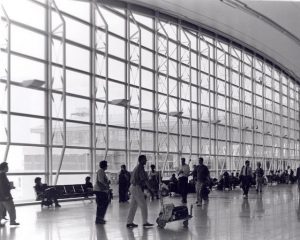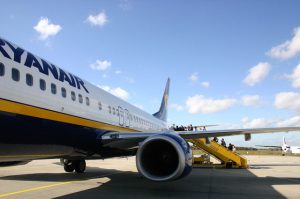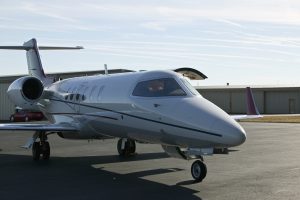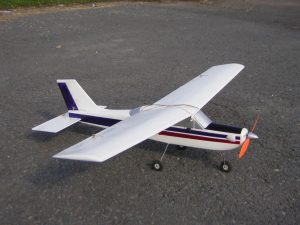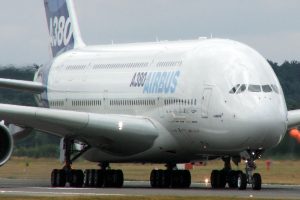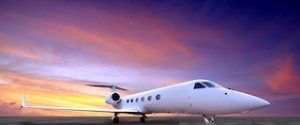8 Attractions A Flying School Nairobi Offers
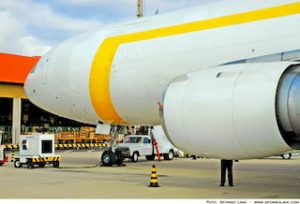 Nairobi, Kenya’s dynamic capital, is rapidly emerging as a premier destination for pilot training, attracting aspiring aviators from around the world. With its unique combination of advanced facilities, diverse training environments, and strategic location, Nairobi offers an array of benefits that make its flying schools particularly attractive to foreign pilots. This comprehensive article delves into the factors that contribute to Nairobi’s appeal as a flying school destination and explains why it stands out on the global aviation training stage.
Nairobi, Kenya’s dynamic capital, is rapidly emerging as a premier destination for pilot training, attracting aspiring aviators from around the world. With its unique combination of advanced facilities, diverse training environments, and strategic location, Nairobi offers an array of benefits that make its flying schools particularly attractive to foreign pilots. This comprehensive article delves into the factors that contribute to Nairobi’s appeal as a flying school destination and explains why it stands out on the global aviation training stage.
1) World-class training facilities
One of the primary reasons foreign pilots are drawn to flying schools in Nairobi is the access to world-class training facilities.
Advanced flight simulators
Nairobi’s flying schools are equipped with cutting-edge flight simulators that replicate real-world flying conditions. Institutions like Laminar Sim and the East African School of Aviation (EASA) feature high-fidelity simulators that offer immersive training experiences. These simulators are crucial for practicing complex flight maneuvers, emergency procedures, and multi-crew operations, providing a comprehensive training environment.
Benefits for foreign pilots
-
- Realistic training experience: Advanced simulators allow foreign pilots to experience a range of flight scenarios and environmental conditions, enhancing their preparedness for real-world flying.
- Cost-effective training: Simulators reduce the need for extensive aircraft hours, offering a cost-effective way to gain valuable flying experience without incurring high operational costs.
- Emergency preparedness: The ability to simulate emergency situations helps pilots develop the skills needed to handle unexpected challenges safely and effectively.
Modern training aircraft
Nairobi’s flying schools maintain fleets of modern training aircraft equipped with the latest avionics and safety features. Training on these advanced aircraft ensures that pilots are familiar with current industry standards and technologies.
Benefits for foreign pilots
-
- Up-to-date technology: Exposure to the latest avionics and aircraft systems prepares pilots for operations with modern commercial airlines and enhances their employability.
- Enhanced safety: Modern aircraft are equipped with advanced safety features, providing a safer training environment and reducing the risk of accidents.
- Adaptability: Training on diverse aircraft types helps pilots become adaptable and versatile, enabling them to operate various aircraft in their future careers.
2) Diverse training environments
Nairobi offers a diverse range of training environments that are beneficial for foreign pilots.
Varied weather conditions
Nairobi’s weather conditions include clear skies, occasional thunderstorms, and variable patterns. This variety provides valuable training experiences for handling different flying scenarios.
Benefits for foreign pilots
-
- Comprehensive weather training: Exposure to different weather conditions helps pilots learn to adapt to varying flying environments and handle adverse weather situations effectively.
- Instrument flight training: Adverse weather conditions often require reliance on instruments for navigation and control, enhancing pilots’ proficiency in Instrument Flight Rules (IFR) operations.
- Real-world preparedness: Training in diverse weather scenarios prepares pilots for real-world conditions they may encounter in different regions around the globe.
Mixed airspace environments
Nairobi’s airspace includes both controlled and uncontrolled environments, offering a comprehensive training experience.
Benefits for foreign pilots
-
- Controlled airspace experience: Training in controlled airspace helps pilots learn to interact with air traffic control (ATC) and follow established procedures, essential for operating in busy international airspace.
- Uncontrolled airspace experience: Exposure to uncontrolled airspace provides opportunities for practicing autonomous navigation and collision avoidance, developing crucial skills for independent flight operations.
- Integration skills: Learning to transition between controlled and uncontrolled airspace prepares pilots for a variety of airspace environments they may encounter globally.
3) Cost-effectiveness
The cost of pilot training is a significant consideration for foreign pilots, and Nairobi offers several cost advantages.
Competitive tuition fees
Flying schools in Nairobi often have lower tuition fees compared to institutions in Europe, North America, or Australia. This cost-effectiveness makes high-quality pilot training more accessible.
Benefits for foreign pilots
-
- Affordable training: Lower tuition fees reduce the overall cost of obtaining pilot licenses and ratings, making Nairobi an attractive option for budget-conscious students.
- Value for money: Despite the lower costs, Nairobi’s flying schools provide high-quality training with advanced facilities and experienced instructors, offering excellent value for money.
Affordable living costs
Nairobi’s cost of living is relatively lower than that of major cities in other countries. This affordability extends to accommodation, transportation, and daily expenses.
Benefits for foreign pilots
-
- Reduced living expenses: Lower living costs help reduce the overall financial burden of studying abroad, making it more feasible for foreign pilots to train in Nairobi.
- Cost-efficient lifestyle: Affordable living allows students to manage their finances better and focus on their training without the stress of high daily expenses.
4) Experienced instructors
The quality of instruction is a critical factor in pilot training, and Nairobi’s flying schools are staffed with experienced and qualified instructors.
Diverse expertise
Instructors in Nairobi come from various backgrounds, including airline pilots, flight instructors, and aviation managers. This diversity brings a wealth of knowledge and real-world experience to the training environment.
Benefits for foreign pilots
-
- Expert guidance: Experienced instructors provide valuable insights and practical knowledge based on their extensive experience in aviation, helping pilots develop essential skills and competencies
- Personalised instruction: Low instructor-to-student ratios ensure that foreign pilots receive personalised attention and tailored instruction, addressing their individual needs and learning styles.
5) Career support and opportunities
Nairobi’s flying schools offer robust career support and opportunities for foreign pilots seeking to advance their aviation careers.
Industry connections
Nairobi’s flying schools have strong connections with airlines, aviation companies, and industry professionals. These connections facilitate job placement and internship opportunities.
Benefits for foreign pilots
-
- Job placement assistance: Many schools offer career support services, including job placement assistance, resume preparation, and interview coaching, helping pilots secure employment in the aviation industry.
- Networking opportunities: Industry connections provide opportunities for networking with aviation professionals, gaining insights into industry trends, and building valuable relationships.
Internship and cadet programs
Some flying schools in Nairobi, such as Laminar Sim, offer internship and cadet programs in collaboration with airlines.
Benefits for Foreign Pilots:**
-
- Practical experience: Internship and cadet programs provide hands-on experience and exposure to real-world aviation operations, enhancing pilots’ practical skills and employability.
- Pathway to employment: These programs often lead to employment opportunities with partnering airlines, providing a direct pathway to a successful aviation career.
6) Cultural and lifestyle benefits
Nairobi’s vibrant culture and lifestyle offer additional benefits for foreign pilots studying in the city.
Cultural exposure
Nairobi is a melting pot of cultures, with a rich history and diverse population. Students have the opportunity to experience different cultures, traditions, and cuisines.
Benefits for foreign pilots
-
- Enriching experience: Cultural exposure enriches the overall experience of studying abroad, providing a broader perspective and enhancing personal growth.
- Global understanding: Interaction with people from various backgrounds fosters a better understanding of global perspectives, which is valuable for pilots who will operate internationally.
Recreational activities
Nairobi offers a wide range of recreational activities, including parks, museums, restaurants, and entertainment venues.
Benefits for foreign pilots
-
- Balanced lifestyle: Recreational activities provide a balanced lifestyle, allowing students to relax and enjoy their downtime while studying in Nairobi.
- Exploration opportunities: Students can explore the city’s attractions and engage in leisure activities, enhancing their overall experience in Kenya.
7) Strategic location
Nairobi’s strategic location as a major hub for East Africa provides additional advantages for foreign pilots.
Regional hub
Nairobi serves as a central hub for regional and international flights, connecting various destinations across East Africa and beyond.
Benefits for foreign pilots
-
- Convenient travel: The city’s central location makes it easy for pilots to travel within the region and to other parts of the world, providing flexibility and convenience.
- Exposure to regional aviation: Training in Nairobi offers exposure to regional aviation operations and practices, broadening pilots’ experience and understanding of different aviation contexts.
Proximity to international airports
Nairobi is home to Jomo Kenyatta International Airport (NBO), a major international airport with extensive flight connections.
Benefits for foreign pilots
-
- Exposure to major airport operations: Proximity to a major airport provides valuable experience in large-scale airport operations, air traffic control procedures, and international flight protocols.
- Networking with industry professionals: Being close to a major airport allows students to network with industry professionals and gain insights into international aviation practices.
8) High standards of education and training
Nairobi’s flying schools adhere to high standards of education and training, ensuring that foreign pilots receive top-quality instruction.
Regulatory compliance
Flying schools in Nairobi comply with international aviation standards and regulations, ensuring that their training programs meet global requirements.
Benefits for foreign pilots
-
- International recognition: Compliance with international standards ensures that the training received in Nairobi is recognised and respected by airlines and aviation authorities worldwide.
- Quality assurance: Adherence to high standards guarantees that students receive a comprehensive and effective education, preparing them for successful careers in aviation.
Innovative teaching methods
Nairobi’s flying schools employ innovative teaching methods, including interactive learning environments, multimedia resources, and simulation software.
Benefits for foreign pilots
-
- Effective learning: Innovative teaching methods enhance the learning experience, making complex aviation concepts more accessible and understandable.
- Up-to-date training: Use of modern teaching tools ensures that students receive current and relevant training, staying abreast of emerging trends and technologies in aviation.
Conclusion
Flying schools in Nairobi offer a range of unique features that make them an attractive choice for foreign pilots.
From world-class training facilities and diverse weather conditions to cost-effectiveness and career support, Nairobi provides an exceptional environment for pilot training. The city’s strategic location, cultural experiences, and adherence to high educational standards further enhance its appeal as a premier destination for aviation education.
Aspiring pilots seeking a comprehensive, cost-effective, and enriching training experience will find Nairobi to be an ideal choice. With its blend of advanced facilities, varied training environments, and supportive career services, Nairobi’s flying schools offer a pathway to success in the global aviation industry.


